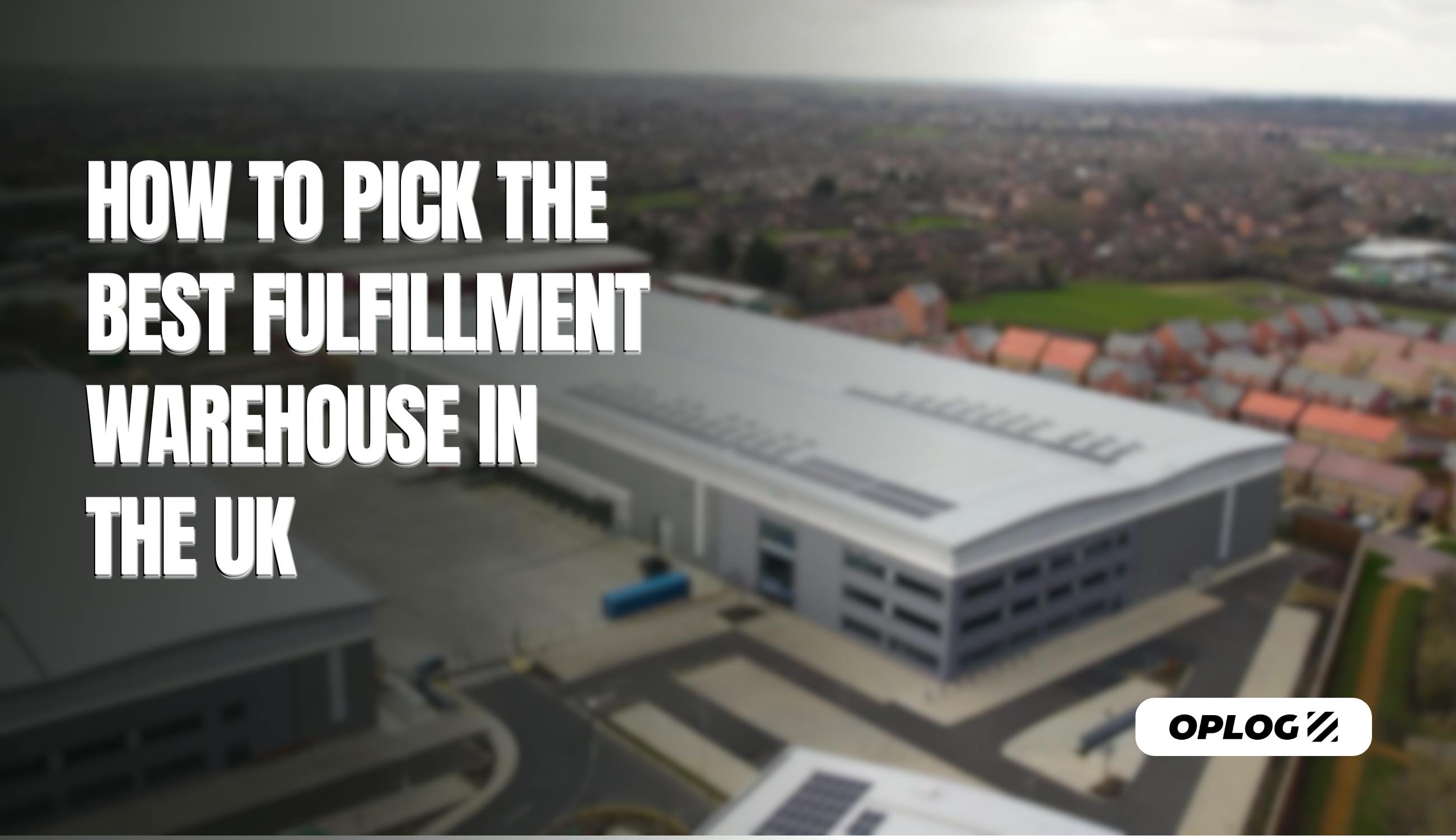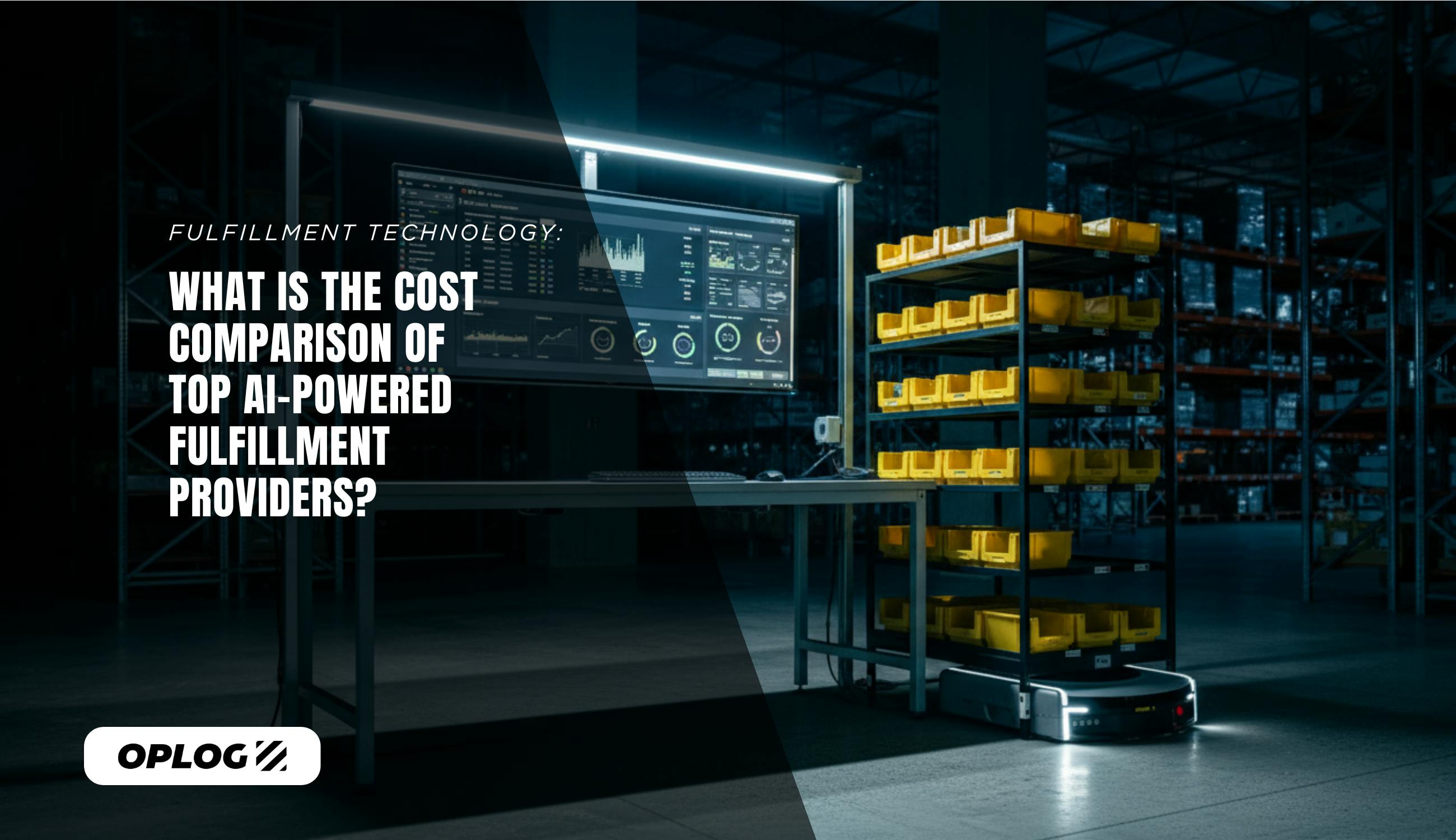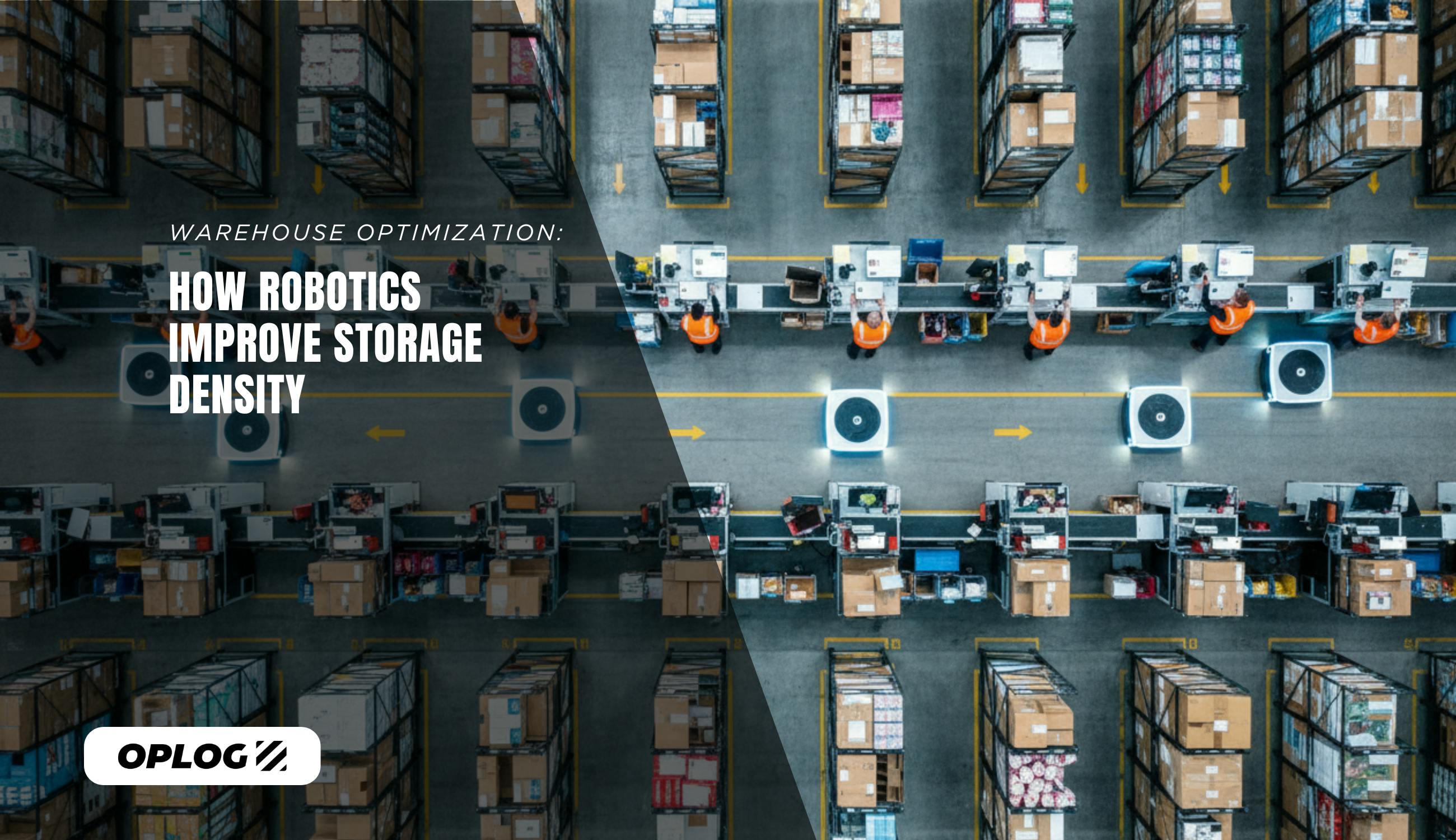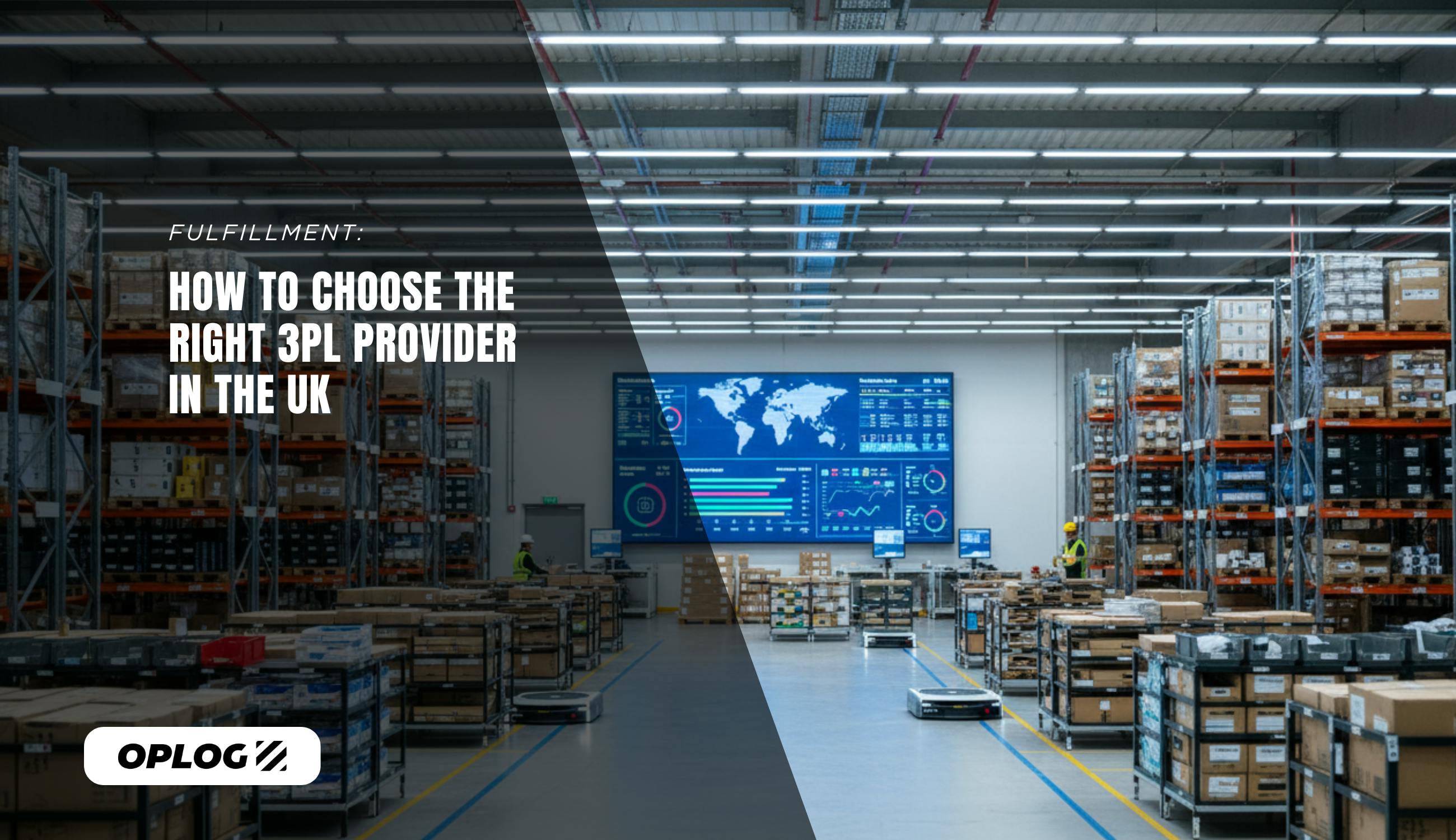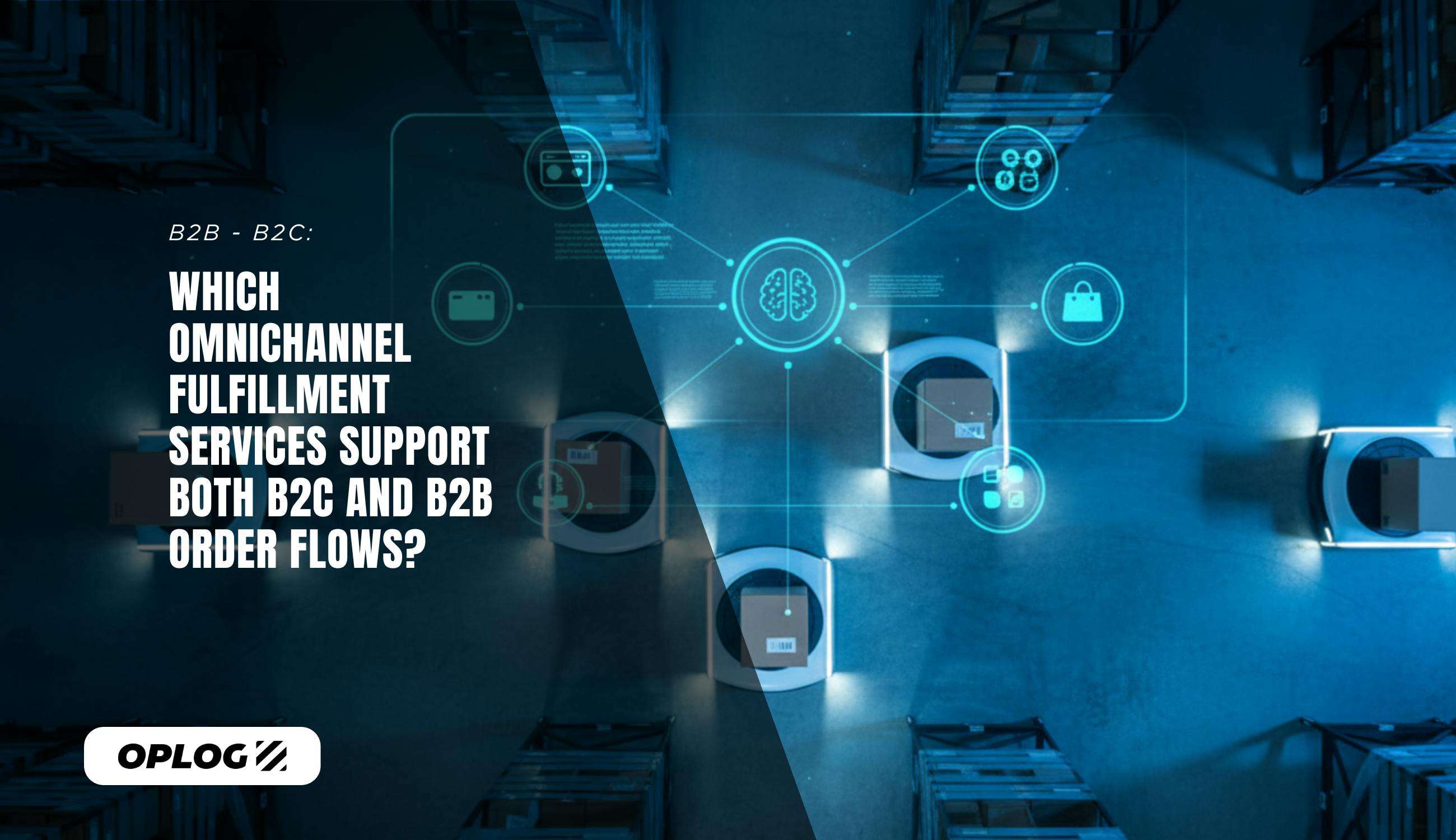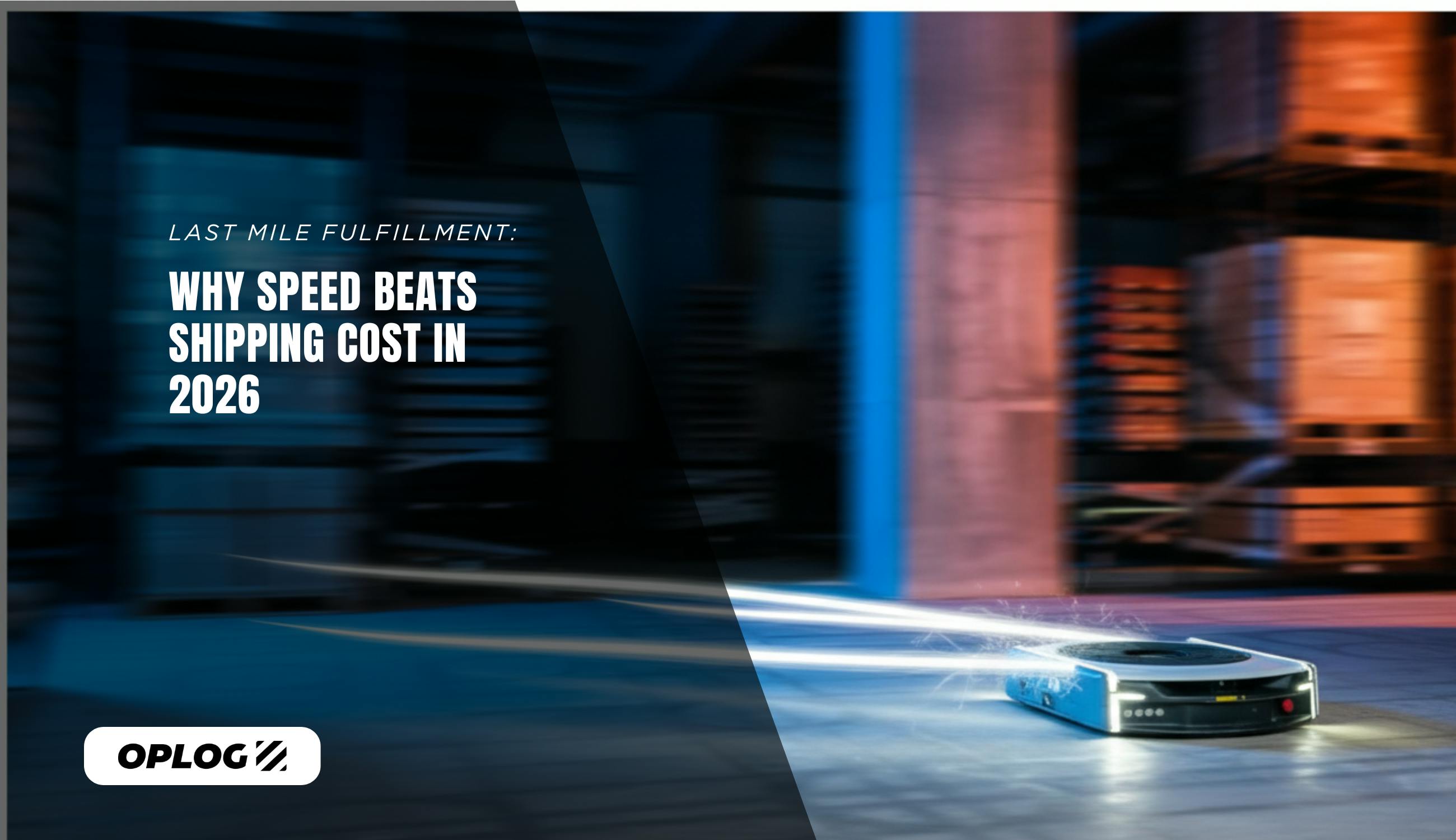How to Pick the Best Fulfillment Warehouse in the UK: The Ultimate 3PL Guide
Choosing the right fulfillment warehouse in the UK can make or break your ecommerce business. With the UK e-commerce market projected to reach £284.5 billion by 2025, and consumer expectations for next-day delivery becoming the norm rather than the exception, your fulfillment strategy directly impacts your competitive edge. Whether you're a growing D2C brand, an established retailer, or an international company entering the UK market, selecting the optimal fulfillment warehouse partner is one of the most critical decisions you'll make.
This comprehensive guide will walk you through everything you need to know about choosing a fulfillment warehouse in the UK, from understanding the unique challenges of UK fulfillment to evaluating potential partners and avoiding costly mistakes. By the end, you'll have a clear framework for making this crucial decision that aligns with your business goals and customer expectations.
Understanding the UK Fulfillment Landscape in 2025
The UK fulfillment landscape has undergone dramatic transformation in recent years. Post-Brexit regulations, evolving consumer behaviors, and technological advancement have reshaped how fulfillment warehouses operate across the country. Today's UK consumers expect nothing less than Amazon-level service: 65% demand next-day delivery options, while 89% consider free returns a standard offering rather than a perk.
The UK's unique geography presents both opportunities and challenges for fulfillment operations. While 80% of the population can be reached with next-day delivery from strategically located fulfillment warehouses in the Midlands, serving Scotland, Wales, and Northern Ireland efficiently requires careful planning and often multiple distribution points. Brexit has added another layer of complexity, with new customs requirements for EU shipments transforming how many fulfillment warehouses handle international orders.
Technology adoption in UK fulfillment has accelerated dramatically. Modern fulfillment warehouses now leverage AI-powered inventory management, robotic picking systems, and sophisticated routing algorithms to meet the demanding service levels UK consumers expect. The best UK ecommerce fulfillment providers have invested heavily in these technologies, understanding that operational efficiency directly translates to competitive advantage for their clients.
The rise of sustainable commerce has also influenced UK fulfillment strategies. With 73% of UK consumers willing to pay more for sustainable delivery options, forward-thinking fulfillment warehouses are implementing eco-friendly packaging, electric delivery vehicles, and carbon-offset programs. This shift isn't just about meeting consumer preferences – it's about preparing for increasingly stringent environmental regulations expected in the coming years.
Fulfillment Warehouse vs Traditional Storage: What's Right for Your UK Business?

Understanding the distinction between a fulfillment warehouse and traditional storage is crucial for making the right choice for your UK ecommerce fulfillment needs. While both involve storing inventory, their operational models, capabilities, and value propositions differ significantly.
A fulfillment warehouse is a dynamic operation designed specifically for ecommerce order processing. Unlike traditional warehouses that focus on bulk storage and wholesale distribution, fulfillment warehouses specialize in picking individual items, packing customer orders, and managing the entire shipping process. In the UK fulfillment context, this means handling everything from receiving your inventory to processing returns, all while maintaining the speed and accuracy demanded by today's consumers.
Traditional warehouses, on the other hand, typically operate on a pallet-in, pallet-out basis. They're ideal for B2B operations or businesses that ship in bulk, but they lack the infrastructure and processes needed for efficient B2C fulfillment. Many UK businesses initially try to use traditional storage facilities for ecommerce fulfillment, only to discover that the lack of specialized picking and packing capabilities creates bottlenecks that frustrate customers and damage brand reputation.
The 3PL (third-party logistics) model has emerged as the preferred solution for most UK ecommerce businesses. By partnering with a specialized 3PL provider operating fulfillment warehouses, businesses can access enterprise-level infrastructure and expertise without the massive capital investment required to build their own facilities. This is particularly valuable in the UK market, where warehouse space commands premium prices, especially near major population centers.
The decision between in-house fulfillment and outsourcing to a fulfillment warehouse often comes down to scale and expertise. While some businesses successfully manage their own fulfillment operations initially, most find that as order volumes grow, the complexity and cost of maintaining in-house operations become prohibitive. Professional fulfillment warehouses offer economies of scale, technological capabilities, and operational expertise that would be impossible for most individual businesses to replicate.
Dropshipping represents another alternative, eliminating the need for inventory storage altogether. However, this model comes with significant trade-offs in terms of quality control, shipping times, and customer experience – factors that are increasingly important in the competitive UK ecommerce landscape. Most successful UK brands find that maintaining inventory in a fulfillment warehouse provides the control and flexibility needed to deliver exceptional customer experiences.
10 Critical Factors When Choosing a UK Fulfillment Warehouse
Strategic Location & Coverage
Location is perhaps the most critical factor when selecting a fulfillment warehouse in the UK. The ideal location balances proximity to your customer base with operational costs and logistics efficiency. The "Golden Triangle" of the Midlands – encompassing Birmingham, Nottingham, and Leicester – has traditionally been the UK's fulfillment hub, offering next-day delivery access to 90% of the UK population.
However, the optimal location for your fulfillment warehouse depends on your specific customer distribution. If your primary market is London and the Southeast, a fulfillment warehouse near London or in the Thames Valley might justify the higher costs through reduced shipping times and transportation expenses. For businesses serving the entire UK, a Midlands location typically offers the best balance of coverage and cost-effectiveness.
Consider also the growing importance of urban fulfillment centers. As same-day delivery becomes increasingly common, forward-thinking 3PL providers are establishing smaller fulfillment warehouses closer to major population centers. These urban facilities, while more expensive per square foot, can dramatically improve delivery speeds and customer satisfaction for businesses targeting city dwellers.
Scotland, Wales, and Northern Ireland present unique challenges for UK fulfillment. While these regions represent smaller portions of the UK market, ignoring them means missing out on millions of potential customers. The best fulfillment warehouse partners either maintain satellite facilities in these regions or have established courier partnerships that ensure reliable service levels across the entire UK.
International connectivity is another crucial location consideration. If you're shipping to Europe or handling international orders, proximity to major ports and airports becomes essential. Fulfillment warehouses near Felixstowe, Southampton, or Heathrow offer advantages for businesses with significant international volume.
Technology & Integration Capabilities
In today's digital-first commerce environment, the technology capabilities of your fulfillment warehouse can make or break your operational efficiency. Modern UK ecommerce fulfillment demands seamless integration between your sales channels, inventory management, and fulfillment operations.
The foundation of any competent fulfillment warehouse is a robust Warehouse Management System (WMS). This system should provide real-time visibility into inventory levels, order status, and shipping information. The best UK fulfillment providers offer API-based integrations with major ecommerce platforms like Shopify, WooCommerce, Magento, and Amazon, enabling automatic order flow and inventory synchronization.
Beyond basic integration, evaluate the sophistication of the fulfillment warehouse's technology stack. Advanced features like predictive analytics for demand forecasting, automated reorder points, and intelligent order routing can significantly impact your operational efficiency. Some leading 3PL providers now offer AI-powered systems that optimize picking routes, predict potential stockouts, and even identify fraudulent orders before they ship.
Mobile technology and cloud-based platforms have become essential for modern UK fulfillment operations. Your fulfillment warehouse should provide a user-friendly portal where you can access real-time data, generate reports, and manage your inventory from anywhere. Mobile apps that allow warehouse staff to update inventory counts and process orders on the go improve accuracy and speed.
Consider also the fulfillment warehouse's ability to handle multi-channel fulfillment. If you sell across multiple platforms – your own website, Amazon, eBay, and perhaps brick-and-mortar stores – your fulfillment partner must be able to manage inventory allocation and order routing across all channels seamlessly. This complexity requires sophisticated technology that many traditional warehouses simply don't possess.
Pricing Models & Hidden Costs
Understanding the true cost of fulfillment warehouse services in the UK requires looking beyond headline rates. While pricing models vary among 3PL providers, transparency and predictability should be non-negotiable requirements in your selection process.
Most UK fulfillment warehouses charge based on three primary components: storage, pick and pack, and shipping. Storage fees typically range from £5-15 per pallet per week or £0.50-2.00 per bin per week, depending on location and service level. Pick and pack fees usually include a base order fee (£1-3) plus per-item charges (£0.20-0.75). However, these baseline costs often tell only part of the story.
Hidden costs can quickly erode your margins if you're not careful. Watch out for receiving fees, which some fulfillment warehouses charge per pallet or per item when your inventory arrives. Returns processing often incurs additional charges, sometimes doubling the original fulfillment cost. Other potential hidden fees include minimum monthly charges, account management fees, integration costs, and special handling charges for fragile or high-value items.
The best UK ecommerce fulfillment providers offer transparent, all-inclusive pricing models. Some progressive 3PL companies have adopted true pay-as-you-go models with no minimum commitments, allowing businesses to scale up or down based on actual demand. This flexibility is particularly valuable for seasonal businesses or startups with unpredictable growth patterns.
When evaluating pricing, consider the total cost of fulfillment, including the impact on your customer experience. A slightly more expensive fulfillment warehouse that offers faster shipping, better accuracy, and superior technology might actually reduce your overall costs by decreasing returns, improving customer lifetime value, and reducing customer service inquiries.
Scalability & Flexibility
Your fulfillment warehouse must be able to grow with your business. The UK ecommerce landscape is notorious for rapid scaling – businesses can experience 10x growth during peak seasons or after a successful marketing campaign. Your fulfillment partner must be able to handle these fluctuations without compromising service quality.

Evaluate the fulfillment warehouse's physical capacity and their ability to allocate additional space during peak periods. The best UK fulfillment providers maintain buffer capacity and have agreements with overflow facilities to handle seasonal spikes. Ask specifically about their Black Friday and Christmas capabilities – these peak periods can see order volumes increase by 300-500% for many UK retailers.
Flexibility extends beyond just handling volume increases. Your fulfillment warehouse should be able to adapt to changing business requirements, whether that's adding new product lines, implementing gift wrapping services, or supporting new sales channels. The most successful 3PL partnerships are those where the provider can evolve alongside your business needs.
Consider also the contract flexibility offered by different fulfillment warehouses. Long-term contracts might offer better rates, but they can become restrictive if your business needs change. Many modern UK fulfillment providers offer month-to-month agreements that provide the flexibility to adjust or change providers if necessary.
International expansion capability is another crucial scalability factor. As your business grows, you might want to expand into European or global markets. Fulfillment warehouses with international networks or partnerships can facilitate this expansion much more smoothly than providers limited to UK operations.
Industry Expertise & Specializations
Different industries have unique fulfillment requirements, and choosing a fulfillment warehouse with relevant expertise can significantly impact your operational success. The UK fulfillment landscape includes both generalists and specialists, each with distinct advantages.
Fashion and apparel fulfillment requires specific capabilities like garment-on-hanger storage, quality control for returns processing, and often same-day shipping for fast fashion items. Fulfillment warehouses specializing in fashion understand the importance of presentation, offering services like tissue wrapping, branded packaging, and careful folding techniques that protect your brand image.
Electronics and high-value goods demand enhanced security measures, serial number tracking, and specialized packaging to prevent damage during shipping. The best fulfillment warehouses for electronics maintain secure cages, implement strict access controls, and offer insurance options that protect against theft and damage.
Health and beauty products often require temperature-controlled storage, batch tracking for expiry dates, and compliance with various regulations. Fulfillment warehouses experienced in this sector understand the importance of FIFO (first-in-first-out) inventory management and can handle the complex requirements of cosmetics and supplements distribution.
Food and beverage fulfillment presents unique challenges, from temperature control to allergen management. Specialized fulfillment warehouses maintain appropriate certifications, implement strict hygiene protocols, and understand the complexities of shipping perishable goods across the UK.
Customer Service & Support
The level of customer service and support provided by your fulfillment warehouse directly impacts your ability to serve your own customers effectively. When issues arise – and they inevitably will – you need a partner who responds quickly and resolves problems efficiently.
Evaluate the fulfillment warehouse's support structure carefully. Do they offer dedicated account management, or will you be dealing with a general support queue? The best UK fulfillment providers assign dedicated account managers who understand your business and can provide strategic guidance beyond basic problem-solving.
Support availability is crucial, especially if you operate outside standard business hours. Many UK ecommerce businesses process orders 24/7, and your fulfillment warehouse should offer support that aligns with your operational needs. At minimum, you should have access to emergency support outside regular hours for critical issues.
Communication protocols and reporting capabilities significantly impact the partnership's effectiveness. Your fulfillment warehouse should provide regular updates on inventory levels, order processing times, and any issues affecting service. Proactive communication about potential problems – such as carrier delays or stock discrepancies – allows you to manage customer expectations effectively.
The quality of the fulfillment warehouse's customer service team is equally important. They should understand both the technical aspects of fulfillment and the commercial implications of service failures. The best teams can offer solutions rather than just explanations when problems occur.
Compliance & Certifications
Operating in the UK requires adherence to numerous regulations and standards. Your fulfillment warehouse must maintain appropriate certifications and demonstrate ongoing compliance with relevant regulations.
Data protection under GDPR is non-negotiable. Your fulfillment warehouse will handle customer data, including names, addresses, and potentially payment information. They must have robust data protection policies, secure systems, and clear procedures for data breach notification. Ask for evidence of GDPR compliance and understand their data handling procedures.
Insurance coverage is another critical compliance area. Your fulfillment warehouse should maintain comprehensive insurance covering inventory loss, damage, and liability. Understand the limits of their coverage and consider whether additional insurance is necessary for high-value inventory. Many UK fulfillment providers offer additional insurance options for businesses with specific requirements.
Security certifications and measures protect both your inventory and your business reputation. Look for fulfillment warehouses with ISO certifications, particularly ISO 9001 for quality management. Physical security measures should include CCTV coverage, access controls, and potentially 24/7 security personnel for high-value goods.
Industry-specific compliance requirements may apply depending on your products. Pharmaceutical products require MHRA compliance, food products need appropriate hygiene certifications, and dangerous goods require specialized handling licenses. Ensure your chosen fulfillment warehouse maintains all necessary certifications for your product categories.
Returns Management
Returns are an inevitable part of UK ecommerce, with average return rates ranging from 15-30% depending on the category. Your fulfillment warehouse's approach to returns management can significantly impact both your costs and customer satisfaction.
The best UK fulfillment providers offer comprehensive returns solutions that go beyond simply receiving returned items. They should provide quality inspection services, determining whether items can be resold, need refurbishment, or should be written off. Quick processing of returns – ideally within 24-48 hours of receipt – enables faster refunds and improves customer satisfaction.
Consider the fulfillment warehouse's capabilities for different types of returns processing. Can they handle exchanges directly, shipping replacement items without requiring new orders? Do they offer refurbishment services for items that need minor repairs or cleaning? Can they manage warranty returns requiring manufacturer involvement?
The technology supporting returns management is equally important. Your fulfillment warehouse should provide visibility into returns status, reasons for returns, and inventory disposition. Advanced analytics on returns patterns can help identify quality issues or sizing problems before they become major concerns.
Some innovative UK fulfillment warehouses now offer "returnless refunds" for low-value items where the cost of processing returns exceeds the item value. Others provide local drop-off points or collection services that improve the customer experience while reducing returns shipping costs.
Shipping Options & Carrier Networks
Your fulfillment warehouse's carrier relationships and shipping capabilities directly impact your delivery options and costs. The UK delivery landscape is dominated by Royal Mail, DPD, Hermes (now Evri), DHL, and UPS, each with different strengths and service levels.
Established fulfillment warehouses leverage their volume to negotiate better rates with carriers – savings they should pass on to clients. Ask potential partners about their carrier relationships and the rates they can offer. The best UK fulfillment providers offer multiple carrier options, allowing you to balance cost and service level for different order types.
Next-day and same-day delivery capabilities have become essential for competitive UK ecommerce fulfillment. Your fulfillment warehouse should offer multiple cut-off times for next-day delivery and have processes in place to prioritize urgent orders. Some advanced 3PL providers now offer late cut-offs (up to 11 PM) for next-day delivery through strategic carrier partnerships.
International shipping capabilities matter even for primarily domestic businesses. Your fulfillment warehouse should be able to handle customs documentation, provide accurate duties and taxes calculations, and offer competitive international shipping rates. Post-Brexit, expertise in EU shipping has become particularly valuable.
Consider also the fulfillment warehouse's approach to delivery optimization. Advanced providers use intelligent routing to select the most cost-effective carrier for each shipment based on destination, size, weight, and required delivery speed. This optimization can reduce shipping costs by 15-20% while maintaining service levels.
Sustainability Practices
Sustainability has moved from nice-to-have to essential in UK ecommerce fulfillment. With increasing consumer awareness and upcoming regulations, your fulfillment warehouse's environmental practices directly impact your brand reputation and potentially your bottom line.
Evaluate the fulfillment warehouse's approach to sustainable packaging. Do they offer plastic-free options? Can they source recycled or biodegradable packaging materials? Some innovative UK fulfillment providers now offer returnable packaging solutions that dramatically reduce waste while potentially lowering costs.
Carbon-neutral delivery options are increasingly important to UK consumers. Your fulfillment warehouse should offer green delivery alternatives, whether through electric vehicle fleets, bicycle couriers for urban deliveries, or certified carbon offset programs. These options might cost slightly more, but they demonstrate environmental commitment that resonates with conscious consumers.
Waste reduction and recycling programs indicate a fulfillment warehouse's broader commitment to sustainability. Look for providers that minimize packaging waste, recycle all possible materials, and have programs for disposing of unsold inventory responsibly. Some fulfillment warehouses partner with charities to donate unsold goods rather than sending them to landfill.
Energy efficiency in warehouse operations contributes to overall sustainability. Modern fulfillment warehouses use LED lighting, solar panels, and intelligent heating/cooling systems to reduce energy consumption. While these might seem like minor factors, they indicate a forward-thinking approach that often extends to other operational areas.
UK-Specific Considerations for Your Fulfillment Warehouse Choice
The UK market presents unique challenges and opportunities that your fulfillment warehouse must be equipped to handle. Understanding these UK-specific factors is crucial for making an informed decision that supports your long-term success.
Brexit has fundamentally changed the logistics landscape for UK fulfillment. If you're selling to EU customers, your fulfillment warehouse must be able to handle the additional customs documentation, VAT requirements, and potential delays at borders. Some UK fulfillment providers have established EU subsidiaries or partnerships to maintain seamless European fulfillment, while others focus exclusively on the UK market. Understanding your international ambitions and choosing a partner aligned with those goals is essential.
VAT handling requires particular attention in the UK fulfillment context. Your fulfillment warehouse should understand VAT implications for different scenarios – domestic sales, EU sales, and international shipments. They should be able to provide the documentation needed for VAT reclaims and support your compliance with HMRC requirements. Some fulfillment warehouses offer VAT registration and filing services, which can be particularly valuable for international businesses entering the UK market.
UK consumer rights regulations, including the Consumer Rights Act 2015, impose specific obligations on ecommerce businesses. Your fulfillment warehouse must support compliance with these regulations, including the 14-day cooling-off period for distance sales and requirements for clear pricing and delivery information. The best UK fulfillment partners understand these regulations and have processes in place to ensure compliance.
Seasonal patterns in the UK market require careful planning and capacity management. Black Friday and Cyber Monday have become major events in the UK retail calendar, often generating 40-50% of Q4 revenue for ecommerce businesses. The January sales, Easter, and back-to-school periods also create significant volume spikes. Your fulfillment warehouse must have proven capability to handle these peaks without service degradation.
Regional variations within the UK market shouldn't be overlooked. Scottish consumers might have different delivery expectations than those in London, while Northern Ireland presents unique logistical challenges due to its geographic separation. The best fulfillment warehouses understand these regional nuances and have strategies to address them effectively.
Red Flags to Avoid When Selecting a UK Fulfillment Warehouse
Recognizing warning signs early can save you from costly mistakes and operational disruptions. Here are the critical red flags that should make you reconsider a potential fulfillment warehouse partner.
- Lack of pricing transparency is perhaps the most common and dangerous red flag. If a fulfillment warehouse is reluctant to provide clear, written pricing or constantly refers to "custom quotes" for standard services, proceed with extreme caution. Hidden fees and unexpected charges are often hiding behind vague pricing structures. Legitimate UK fulfillment providers should be able to provide clear pricing tiers and explain exactly what's included in their services.
- Outdated or inadequate technology infrastructure will cripple your growth potential. If a fulfillment warehouse still relies on paper-based systems, lacks real-time inventory tracking, or can't integrate with major ecommerce platforms, they're not equipped for modern UK ecommerce fulfillment. Similarly, be wary of providers who promise technological capabilities but can't demonstrate them or provide references from businesses using these features.
- Limited or no client references should raise immediate concerns. Established fulfillment warehouses should readily provide references from current clients in similar industries or with comparable volumes. If they claim confidentiality prevents them from sharing any client information, this often masks a lack of successful partnerships or high client turnover.
- Poor communication during the sales process often predicts poor communication during operations. If getting responses takes days, if your questions aren't answered clearly, or if you're passed between multiple contacts without clear ownership, expect these communication issues to worsen once you're a client. Effective UK fulfillment requires constant communication, and providers who can't demonstrate this during courtship won't deliver it during marriage.
- Inadequate insurance coverage or reluctance to discuss liability terms should trigger serious concerns. Professional fulfillment warehouses carry comprehensive insurance and are transparent about coverage limits and claim procedures. If a provider tries to limit liability to unreasonable levels or can't provide proof of adequate insurance, your inventory and business are at risk.
Step-by-Step Process to Evaluate UK Fulfillment Warehouses
A systematic evaluation process ensures you make an informed decision based on objective criteria rather than sales pressure or attractive pricing alone.
- Start with a thorough needs assessment. Document your current order volumes, seasonal patterns, SKU count, special handling requirements, and growth projections. Understanding your specific requirements helps eliminate unsuitable fulfillment warehouses early and focuses your evaluation on providers who can genuinely meet your needs. Include both current requirements and anticipated needs over the next 2-3 years.
- Create a comprehensive Request for Proposal (RFP) that goes beyond basic pricing. Include scenarios that reflect your actual operations – peak day volumes, typical order profiles, returns processing requirements, and any special services you need. Ask specific questions about technology capabilities, integration timelines, and service level agreements. The quality and thoroughness of responses will reveal much about each fulfillment warehouse's capabilities and professionalism.
- Conduct site visits to your shortlisted fulfillment warehouses. Virtual tours can provide initial insights, but nothing replaces walking through the actual facility. Observe the organization, cleanliness, and efficiency of operations. Watch how staff handle products similar to yours. Check the condition of packaging materials and shipping areas. A well-run fulfillment warehouse should be proud to show their operations and explain their processes in detail.
- Request and check references thoroughly. Don't just accept provided references – ask for clients with similar profiles to your business. When speaking with references, ask specific questions about problem resolution, peak season performance, and any service issues they've experienced. Also inquire about hidden costs and whether the fulfillment warehouse delivered on their sales promises.
- Implement a pilot program before committing to a long-term partnership. Start with a limited SKU range or specific product category to test the fulfillment warehouse's capabilities. Monitor key metrics like order accuracy, shipping times, and inventory accuracy. This real-world test provides invaluable insights that no amount of due diligence can replace.
Understanding Fulfillment Warehouse Costs in the UK
Accurately understanding and comparing fulfillment warehouse costs requires looking at the total cost of fulfillment, not just headline rates. UK fulfillment pricing has evolved significantly, with innovative providers offering more transparent and flexible models.
Storage costs in UK fulfillment warehouses typically range from £5-15 per pallet per week, with location being the primary driver of variation. London and Southeast facilities command premium rates, while Midlands and Northern locations offer more competitive pricing. However, cheaper storage might result in higher shipping costs if the location is far from your customer base. Calculate the total landed cost, including storage and shipping, to make accurate comparisons.
Pick and pack fees usually comprise a base order charge (£1-3) plus per-item fees (£0.20-0.75). However, these rates can vary significantly based on order complexity. Orders requiring gift wrapping, kitting, or special handling will incur additional charges. Some UK fulfillment providers offer flat-rate pricing for standard orders, which can simplify budgeting and improve predictability.
Returns processing costs often surprise businesses new to outsourced fulfillment. Basic returns processing typically costs 1.5-2x the original fulfillment fee, but this can increase if quality inspection, refurbishment, or special handling is required. Factor in return rates for your product category when calculating total fulfillment costs – a 20% return rate effectively increases your fulfillment costs by 30-40%.
Technology and integration fees vary widely among UK fulfillment providers. Some charge significant upfront integration fees (£1,000-5,000), while others offer free integration with popular platforms. Ongoing technology fees might include API calls, EDI transactions, or premium reporting features. Consider these costs in your total cost of ownership calculation, but also weigh them against the efficiency gains and visibility improvements they provide.
The ROI of professional fulfillment extends beyond direct cost comparisons. Consider the opportunity cost of managing fulfillment in-house, the impact of improved delivery times on conversion rates, and the value of scalability during peak periods. Many successful UK ecommerce businesses find that outsourcing to a quality fulfillment warehouse, despite appearing more expensive on paper, actually improves their overall profitability through improved efficiency and customer satisfaction.
Why Oplog is Transforming UK Fulfillment

As the UK ecommerce fulfillment landscape evolves, Oplog stands at the forefront of innovation, bringing revolutionary robotics technology and flexible pricing models to businesses of all sizes. Our UK fulfillment centers combine the power of TARQAN robotics with deep local market expertise to deliver unmatched service levels.
Our proprietary TARQAN robotics system transforms traditional fulfillment warehouse operations, achieving 99.9% accuracy rates while reducing processing times by 40%. This technology isn't just about efficiency – it's about giving your business a competitive edge in the demanding UK market. By automating repetitive tasks and optimizing picking routes, we ensure your orders are processed faster and more accurately than traditional 3PL providers.
What truly sets Oplog apart in UK fulfillment is our genuine pay-as-you-go model. Unlike other fulfillment warehouses that hide minimum fees and long-term commitments in their contracts, we believe in complete transparency and flexibility. You pay only for what you use, with no hidden charges or surprise fees. This model is particularly powerful for UK businesses dealing with seasonal fluctuations or uncertain growth trajectories.
Our OPLOG ONE platform provides unprecedented visibility and control over your UK ecommerce fulfillment operations. Real-time inventory tracking, predictive analytics, and seamless integration with all major ecommerce platforms ensure you're always in control. The platform's intuitive interface means you can manage your entire fulfillment operation from anywhere, without the complexity that plagues traditional WMS systems.
We've invested in understanding the unique requirements of UK fulfillment, from navigating post-Brexit regulations to meeting the exacting standards of UK consumers. Our team includes experts in UK VAT, customs procedures, and consumer regulations, ensuring your fulfillment operations remain compliant and efficient.
Your UK Fulfillment Warehouse Selection Checklist
To help you make the best decision for your business, we've created this comprehensive checklist covering all critical evaluation criteria:
Location & Coverage
- Next-day delivery coverage for your target markets
- Proximity to major carriers and transportation hubs
- Multi-location options for broader coverage
- International shipping capabilities
- Urban fulfillment options for same-day delivery
Technology & Integration
- Real-time inventory management system
- API integration with your ecommerce platforms
- Mobile access and cloud-based platform
- Automated order routing and optimization
- Comprehensive reporting and analytics
Pricing & Contracts
- Transparent, all-inclusive pricing
- No hidden fees or surprise charges
- Flexible contract terms
- Competitive shipping rates
- Clear returns processing costs
Operational Capabilities
- Proven peak season capacity
- Multi-channel fulfillment support
- Special handling capabilities for your products
- Quality control processes
- Kitting and customization services
Support & Service
- Dedicated account management
- Support hours matching your needs
- Clear escalation procedures
- Regular performance reviews
- Proactive communication protocols
Compliance & Security
- Comprehensive insurance coverage
- GDPR compliance
- Industry-specific certifications
- Physical security measures
- Disaster recovery plans
Use this checklist to score potential fulfillment warehouse partners, weighing each factor according to your business priorities. The provider with the highest weighted score is likely your best match for successful UK fulfillment.
Conclusion
Selecting the right fulfillment warehouse for your UK ecommerce business is a decision that impacts every aspect of your operations, from customer satisfaction to profitability. The UK fulfillment landscape offers numerous options, from traditional 3PL providers to innovative technology-driven solutions that can transform your competitive position.
Remember that the cheapest option is rarely the best value. Focus on finding a fulfillment warehouse partner that aligns with your business goals, understands your industry's unique requirements, and has the technology and flexibility to grow with you. Whether you're a startup looking for your first fulfillment partner or an established business seeking to upgrade your logistics operations, the right choice will provide the foundation for sustainable growth.
The future of UK ecommerce fulfillment belongs to those who embrace innovation, prioritize customer experience, and maintain the flexibility to adapt to changing market conditions. By carefully evaluating potential partners using the criteria outlined in this guide, you'll be well-positioned to make a decision that drives your business forward.
Ready to transform your UK fulfillment operations? Contact Oplog today to discover how our robotics-powered fulfillment warehouses and true pay-as-you-go model can give your business the competitive edge it needs in the demanding UK market.
